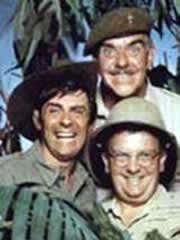

Since being ever so slightly disillusioned with the constant churning out of talent less track after another, there comes a time in a writers life (or a certain age, which ever comes first0 when she sits back and starts to take stock of what is exactly out there these days. I’m going to disregard the X factors of this world, because these are innocent individuals who quite unknowingly shuffle, in a transfixed state, into the jaws of the cold hearted music industry, selling their soul, private lives and fluffy hair grips to give away on a Saturday night before the show in return of a giant question mark they unwittingly drag behind themselves all the way to the job centre when the curtain comes down.
D is for Deacon Blue…
Okay not everyone’s cup of tea and if you didn‘t like them then at least they don‘t make records anymore, but because I have deliberately stayed away from the section entitled Room 101, I do, as it happens, think they weren’t too bad….
Born out of political respect for the pride of the working classes, Deacon Blue heralded a shift in the stagnant pop pattern. Striding forcefully from Glasgow with the rest of the community behind them, this band defined a fierce strength in their contribution to U.K music history. Practically taking the Eighties bull by the proverbials, Deacon Blue set out to create a meaning behind composition. Something that had laid dormant since the burst of the Greenwich village Sixties…
Their king at the realm was remedy man, Ricky Ross who was accompanied on backing vocals by his girlfriend, Lorraine McIntosh. The band were joined by four more firm handed musicians including James Prime who had drifted exuberantly from fellow Scots poppers, Altered Images. It was arguably, their early years, that gave Deacon Blue the platform that they eagerly needed for their hard, Scottish rhythms and soft Celtic styled ballads. Their first album, was probably their best; ‘Raintown’ pretty much described everything that the band stood for both socially and emotionally. Ross’s gruff, gritty vocals were soothed and bathed accordingly by McIntosh’s swift, floating tones. Their music was unmistakeable for the time of the fast mid Eighties. When most years would trickle in a constant turn over of sub genres here and there, the mid to late Eighties was practically a flood. We drowned in this branch of rock and that stem of a sound that once was orchestrated by this person and was taken by that artist and given these synths…the stories were endless, it was hard to tell who was what and what was singing who. We could, however, lean back on steady, unbend able bands like Deacon Blue who didn’t mess around with our ears in the long run. The tragedy of such bands was that by the time the Nineties showed up, their sound struggled to keep up with the shifts yet gain…
We felt at home with them. They spoke out about pride, ‘dignity’, passion and sorrow; the usual human feelings that other pop ‘masters’ failed to home in on. Two of their eight albums reached number one, ‘When The World Knows Your Name,’ (April 1989) and ‘Our Town - Greatest Hits,’ (April 1994), but strangely, never a number one single.
Putting down the denim and the hairspray in 1994, the band, it was probably the untimely death of their guitarist Graeme Kelling from cancer in 2004, that truly marked the end of an era. Although Ross had gone away to retreat into song writing ecstasy, he did cast his talents back to the Dignity days of DB by trying to attempt a solo recording career. Naturally, when any front man goes off, it usually flops, (take note, David Lee Roth) Perhaps, the most surprising thing within this band is not the fact that some of us still play their records, but the latter note of Ross’s solo project, was heavily constructed on a desire to sound like Oasis. Liam, you’ve not hit the big time…
B is for The Bambi Slam…
Right, so only the more hardened of indie punk rockers will know who I am talking about now, but stick with it if you can..
Around the mid to late Eighties, a band of Canadian and British origin came to the fore in the indie scene by the name of Bambi Slam. Basing their punk themed rock and silky layered harmonies on influences from such diverse Eighties bands such as Jesus and Mary Chain, The Bambi Slam took this genre and added, quite defiantly, young Linda Miller on Cello as well as a softer approach to their subjects and with Miller, a feminine side to their boyish, moody front. This unusual stance gave their indie sound edge as well as a sort of depth that was not the way indie music was performed twenty years ago. Although lead man, Roy Feldon had all the visual impact of a long haired student on campus, it was their distorted approach to both their compositions and accompanying video that made them stand out. Their music could truthfully said that it had an appeal that was captivating to any listener. The introverted, yet wistful lyrics on 'Take Me With You,' led you to believe that they were merely a folky band with warm hearts, but on the other hand, the sobering depression of the thunderous, 'I'm Left Wonderin' will have you think differently..
Three albums quickly followed one another and after a BBC session for the late John Peel, The Bambi Slam seemed to fade away into complete obscurity. Since it has been the norm for most Eighties indie bands not to still be kicking around the music industry today, perhaps it is no surprise, but it is a surprise to learn that their career only lasted a couple of years. By the time 1988 rolled around and even after supporting rock Gods, The Cult on a British tour, the band had split leaving Roy Feldon to embark on a short lived solo career. He had kept the group name and still performed under it.
It has been a shame that this band never made it any further than university venues and student record collections. I was lucky to come across their first album 'Peace,' totally by accident in a South London library of all places. Being the head hunter of extraordinary music for a college radio station at the time, I was keen to use The Bambi Slam stuff and spread it around the student community, but as I had later discovered, they were, to no fault of their own, a band of their time and of their generation. Perhaps if teenagers found The Bambi Slam legacy, the band might be given a new lease of life today.
The Bambi Slam were;
Roy Feldon - guitar/vocals
Nick Maynard - drums
Linda Miller - cello
(and someone on bass!)
Albums included;
Is (EP) 1987
Bambi Slam 1988 (play this on 45rpm, it sounds a hell of a lot better…)
Peace 1978
T is for Tindersticks…..
I was recently asked to write an article on Nottingham, now because I only can think in music/band/artist terms, I decided that the best solution (and not to make a complete prat of myself) was to write about any famous bands that have come out of Nottingham in the last forty years. You wouldn’t believe how difficult that was…then suddenly I managed to get lucky ( no I didn’t answer my phone to NME offering me a job) but I found that I could grace my keyboard with the lush descriptions of Tindersticks. (You look puzzled…)
Tindersticks plunged head first into our ears initially as the strangely titled, Asphalt Ribbons. Quite where this name originated, I don’t know, and even so, it was not under this name that they found any great success. Yet, it was the three musicians plus three more that gave us the name that stayed fast. Although, they never appeared to conger up any real critical acclaim, they did have a fairly memorable album, ’The Second Tindersticks Album,’ that landed the position of number 13 in April 1995. Describing them to a complete stranger is rather a difficult task as they did seem to create a genre all of their own. Not quite fitting into a known category, other than ‘chamber pop’, they may have been brushed casually with the title of Goth Gods, although this would have been better felt to be at the most extreme end of the scale where Goth may have met Country on a unique and totally accidental night…
One thing was for certain, they somehow found the same frequency as a few other darkly spirited romantics floating around at the time. As the colourful craziness of the Eighties came to an abrupt halt and the more monochromed moroseness of the Nineties began, Tindersticks found themselves an audience that was surprisingly and completely at their mercy. Their depressingly precise lyrics and heart aching melodic music was quite the tonic for the faint hearted. Even though they were fundamentally a band who produced meaningful prose and wistful string arrangements, they were not unlike the pensive side of Lou Reed’s Velvet Underground. The brooding vocals of Stuart Staples in Tindersticks was enough to melt the most coldest of souls. His emotion altering lyrics shifted darkly and absorbingly through the aching tunes and mournful chords, that the listener felt quite dragged in to his doom and gloom world. Perhaps making what we knew as mainstream Goth more along the lines of Stock, Aitken and Waterman..
Despite their bleak outlook, their beauty came from their traditionally perfected arrangements. Their music, although noose-needing, spelt out a theme that probably applies to us all at some stage in our lives. What Tindersticks gave us was an alleyway; destitute and deathly as it was, but a path when, on such down trodden moments, we might just find a guiding light. These glamorously laced themes dripping with personal failure were beautifully crafted with such musical skill that the songs seem practically timeless. It could well be argued that there never was, nor will there ever be, a band with such a gentle, inoffensive sound quite like Tindersticks. Find out more about this uniquely accomplished band at www.tindersticks.co.uk.
Food for thought perhaps while to hum away to your local radio station next time, but the general point of this muse is to sometimes salute the stuff that’s come and gone…
Thanks for persevering…
©m.duffy (sam1942 and Planet Janet featured on the websites dooyoo and ciao)
(part of this article has also appeared on ezinearticle.com and other places under
Thursday, May 03, 2007
A Born Again Real Gone Kid...
Posted by
Michelle Duffy
at
Thursday, May 03, 2007
![]()
Subscribe to:
Post Comments (Atom)






No comments:
Post a Comment